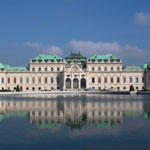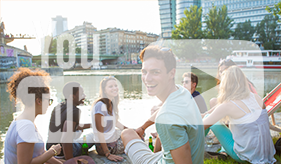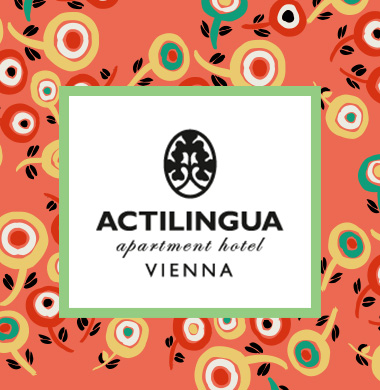Viennese Culture
Customs
|

|
Österreich 2005: An important year for Austria
So what is happening in Austria this year? Here is a very short selection of some highlights! |
|

|
"The new Austria" - Exhibition at Belvedere PalaceWhat better place to organise a large-scale exhibition on Austrian history and identity? After all, it was at the Marble Hall at Upper Belvedere Palace that the Austrian State Treaty ("Staatsvertrag") granting Austrian independency and neutrality was signed by the 4 foreign ministers of the Allied Forces (France, Great Britain, the Soviet Union and the United States of America) and presented on the balcony to the Austrian people. The exhibition covers recent Austrian history: the downfall of the Habsburg monarchy, WW I, the interwar period of First Republic, civil war and the advent auf the Dollfuß dictatorship ("Ständestaat"). In 1938, the Austrian government reluctantly gave in to Hitler's annexation plans and Austria became part of the "Deutsch Reich". The catastrophe World War II and systematic prosecution of Jews, political opponents and social outsiders ensued. In 1945 the Allied Forces freed Austria and supported Karl Renner and his provisionary government, thereby reinstating democracy in Austria. Austrian independence was declared. Till 1955, however, the allied forces were present with troops and Austria was divided into 4 zones of occupation. The singing of the Austrian State Treaty on 15 May 1955 finally led to an independent Austria and the area of the Second Republic, which lasts till today. Reconstruction effort, economic boom, the shaping of the Austrian identity and stereotypes, but also international issues like Austria's joining of the United Nations, its situation during Cold War period and its development in recent years are all part of this extraordinary exhibition! Belvedere Palace, Prinz-Eugen-Strasse 27, A-1030 Vienna |

|
50 years of public-service television (ORF)From 1945 - 1955 the allied
troops controlled all public radio broadcasts. Little
by little regional radio stations where allowed to broadcast.
Television did only exist as an experiment and was of
little importance as no one could afford a TV anyway.
A few weeks after the signing of the Austrian State
Treaty an experimental television studio was erected
in Meidling, one of Vienna's suburbs. As a trademark
an image of St.
Stephan's cathedral was used. Only in 1957, television
started to operate full-time meaning, during daytime
and in the evening. Advertising was introduced
as early as 1959 but is limited in airtime and characters
till today. For example, there's no advertising during
broadcasts and there ought to be no product placement. Switch on your TV when in Austria! |

|
50th anniversary of reopening of Spanish Riding SchoolTo celebrate its reopening after WW II the Spanish Riding School will visit Graz, Salzburg and Innsbruck (September 2005) and will host a gala performance in Vienna on October 25th! Make sure to get tickets early! Spanish Riding School, Michaelerplatz 1, A-1010 Vienna |

|
Österreich baut auf! - Exhibition on Austrian post-war effortsAfter the war the situation
in Austria, especially in the cities, was desperate:
There was hardly any food, many flats where bombed,
public transport and health care was practically non-existant.
Support from outside (allied forces, red cross, private
initiatives,) helped a lot. Due to skilful politics,
Austria managed to be accepted for the American Marshall
plan help program. It was the only Soviet-occupied
country to do so. The US foreign minister George Marshall
stressed the importance of a coordinated effort and
supported the foundation of the OEEC: Organization for
European Economic Cooperation. By this, he started off
a process that culminated in the EU! |







